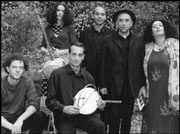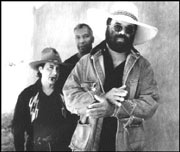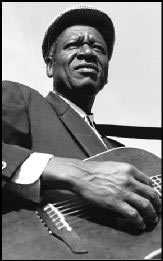LO’JO
Century Ballroom, 324-7263, $20
8 p.m. Tues., Sept. 17
SEATTLE AND LO’JO have enjoyed a love affair for four years now. The French band were the hit of the first WOMAD USA in 1998, then returned for a trio of shows at Bumbershoot the following year, capping it all off with another WOMAD triumph in 2001. And each time, they won a bigger following with an idiosyncratic global mix of chanson, Gypsy fire, rough North African rhythms, West African lyricism, and Jamaican dub. All of those elements are perfectly laid out on the just-released Au Cabaret Sauvage, an effort that hones and expands their eclectic noise.
“We worked in a new studio, and I think it’s better for our music—we feel more confident there,” explains singer/ keyboardist Denis P顮. “It had good equipment to do samples. If we want to use technology, we do. I think we feel better together in the band now. We had many troubles in the past, but now we have better control in music and poetry.”
Their sound has developed gradually over two decades, since P顮 and violinist Richard Bourreau formed Lo’Jo in 1982 in the French town of Angers. Their existential mix of music, poetry, and street theater finally found its feet after the addition of sisters Yamina and Nadia El Nourid, whose Maghrebi harmonies proved the perfect complement for P顮’s louche, Serge Gainsbourg musings on 1998’s breakthrough, Mojo Radio.
But perhaps the major turning point came when the band went to Bamako, Mali, to record tracks for Bohꭥ de Cristal in 2000.
“What you learn in Bamako, or anywhere in Africa, is that things are very simple and obvious, like the African instruments,” says manager Phillippe Brix, the band’s “seventh member.” “Things are possible and easy, and they sound very good. It’s also philosophical. Here in Europe, we’re very much like Americans—very rich and wasting many, many things. In Africa they’re wasting things, but not in the same way—maybe 10 or 20 times less. So you learn something strong when you’re in the middle of that—about where you are in the world, what you have to do. And Africa is very important for musicians, of course.”
While there, they befriended desert musicians of the nomadic Tuareg tribe and helped organize a festival on the edge of the Sahara (that will be repeated next January), which led to them producing a CD for Tuareg band Tinariwen.
“We’ve got to know each other well,” notes Brix. “The two bands work independently, but their inspiration is very strong for us. They’re making a new record for World Circuit Records, with Justin Adams producing, and Robert Plant invited them to open for him in London.”
FOR NOW, LO’JO are concentrating on touring behind Au Cabaret Sauvage, and undertaking their first full U.S. trek—previously they’ve only played festivals here. At the heart of their music lies a childlike wonder about the world, grabbing at it all, and putting the pieces together to make their own picture of life. That’s the real joy of hearing them and one reason their charismatic performances have been so successful. But that doesn’t mean they’re satisfied with what they’ve done.
“We’ve come a long way with many troubles and some mistakes. Now we can take more right steps,” insists P顮. “For me, it’s a beginning, and we feel very good together. But I think we can do better. I always think we’re children doing experiments about life and sound. We’re very naive, but now we have the power to be more naive.”









